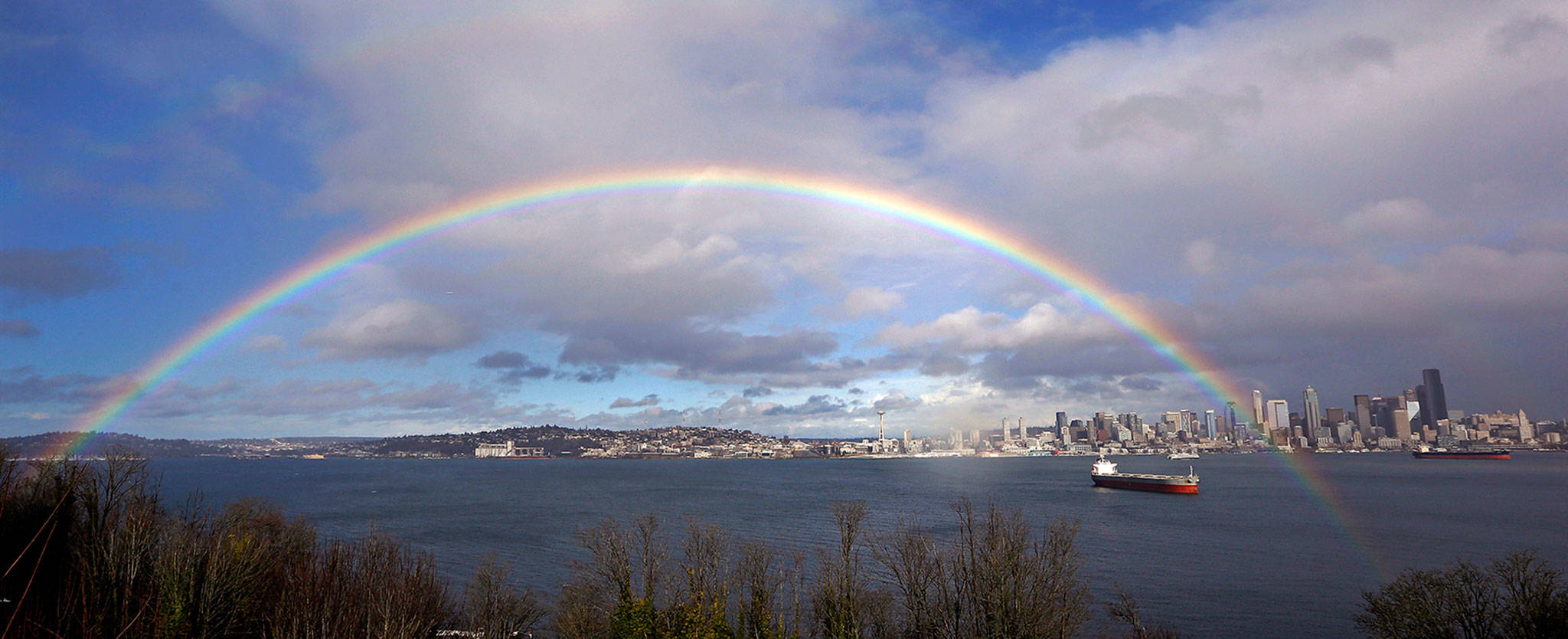Snohomish County and the city of Everett plan to join governments in King and Pierce counties in a new economic development organization to attract business, trade and investment to the Puget Sound region.
The public-private nonprofit, called Greater Seattle Partners, hopes to capitalize on Seattle’s international recognition, but its mission is to promote the region as a whole. An executive council of 22 private-sector members and 11 public leaders held its first meeting this week.
“We are stronger when we work as partners, not as competitors,” said Snohomish County Executive Dave Somers, who is among the involved public leaders. “Each of our partners has great strengths and assets to offer, and when combined as a region, we have everything needed to compete globally.”
Somers said Snohomish County needs to shine, but doing so requires it to embrace the Seattle brand.
“Seattle is recognized,” Somers told The Daily Herald. “Everett? Not so much.”
At the same time, “We’re in a regional ecosystem with our transportation and education systems. You have a lot of people that live in Snohomish County and work in King County or live in King County and work here,” said Somers, who co-chairs the group’s investor board with King County Executive Dow Constantine.
Somers has been meeting with Snohomish County mayors over the past year, providing information and progress reports about the organization.
“There was some fear this was going to be all about King County, but it’s not. … This is truly going to be a regional organization that has equal voice and representation.”
Snohomish County has not yet contributed financially to the Greater Seattle Partners because annual dues have not been set, Somers said. A one-time contribution of $50,000 to jump-start the organization is “still up to the County Council for ratification.”
In addition to Snohomish County, public participants include King County, Everett, Bellevue, Seattle, Tacoma, Washington State University and the University of Washington. Members also include some of the region’s largest companies, including Amazon, Boeing, Microsoft, Starbucks, Alaska Airlines, Kaiser Permanente, Providence Health & Services, Aviation Technical Services and Wells Fargo.
Contributions of $2 million helped Greater Seattle Partners get off the ground, with 75 percent of that money donated by the private sector.
Former Gov. Chris Gregoire spearheaded a nearly two-year effort to create the regional group. Gregoire leads a private-sector initiative, Challenge Seattle, whose goals include improving education, infrastructure and job opportunities.
Seattle’s challenges, such as gridlock and skyrocketing housing costs, can deter new enterprise and industries. Instead of letting a prospective incoming business walk away, the group’s idea is to provide a regional alternative. Perhaps Everett or Marysville or Tacoma might be a better fit, for example.
To make their case as alternatives, cities and towns would be asked to complete a quantitative study of their locations’ assets, such as proximity to a deep-water port or commercial airport, housing availability, the condition of infrastructure and educational resources.
Each city or area would then present a potential business, employer or trading partner with a data-driven report outlining key advantages and disadvantages.
That approach is not unlike an ongoing state-coordinated pitch to the Boeing Co. to build its next airliner, dubbed the 797, in Washington. The pitch will be based in part on a quantitative report by an aerospace consultant, the Teal Group, which compared Washington’s aerospace resources and infrastructure with the other 49 states.
“Working together as one region will make us more competitive, resilient, prosperous and successful in trade and economic development,” said Phyllis Campbell, chairwoman for the Pacific Northwest arm of JP Morgan Chase Bank. She co-chairs Greater Seattle Partners with Brad Tilden, CEO of Alaska Airlines.
The nonprofit group does not intend to supplant the work of local governments and business and economic groups — such as Economic Alliance Snohomish County, the Puget Sound Regional Council or the Washington Roundtable, Gregoire said.
Competition among cities and towns in the three counties is to be expected, but a greater goal is for some place in the region to win instead of watching a new enterprise or industry turn away from the region or choose a location outside the state, Gregoire said.
The organization’s leadership board is led by Bill McSherry, vice president of government relations and global corporate citizenship for Boeing Commercial Airplanes. Other members of the board are Auburn Mayor Nancy Backus, Tacoma Mayor Victoria Woodards and Will Einstein, director of new product development at Puget Sound Energy.
Greater Seattle Partners has also conducted a nationwide search to recruit a professional trade and economic development CEO for the organization. That appointment is expected in July, and the group is planning to be operational in August.
Janice Podsada;
jpodsada@heraldnet.com; 425-339-3097.
Talk to us
> Give us your news tips.
> Send us a letter to the editor.
> More Herald contact information.

























